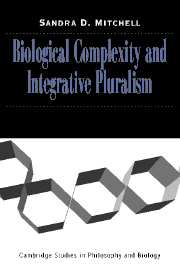1 - Introduction
Published online by Cambridge University Press: 05 June 2012
Summary
In a variety of scientific disciplines, political discussions, and social policy forums, there is increasing interest in diversity as an inherent good. Stifling the voices or participation of underrepresented ethnic or economic groups is tantamount to giving up democratic ideals. While there have been trends toward “big science,” collapsing scientific research into one or a small number of tracks, diversification of projects funded is associated with potential for creative breakthroughs. Indeed, the National Science Foundation's mission statement acknowledges, “The needs and opportunities of the science and engineering enterprise come in all shapes and sizes. The challenge to NSF is to meet these needs and pursue these opportunities in ways that are appropriate in each case” (National Science Foundation 1995). Since the establishment of the Convention on Biological Diversity, the variety and variability of life itself has been deemed of “intrinsic value.” Yet the attitude of deeming diversity of any kind a prima facie good has prompted justified concern about sliding down a slippery slope to complete relativism with an accompanying loss of critical standards in all these domains.
In science, the debate is reflected in a dispute about the unity or disunity of science. In this context, reductionists hold a set of beliefs and methodologies aiming to reduce the diversity of explanations to a small number of theories or laws at a privileged level of discourse, thereby globally unifying science.
- Type
- Chapter
- Information
- Biological Complexity and Integrative Pluralism , pp. 1 - 10Publisher: Cambridge University PressPrint publication year: 2003

